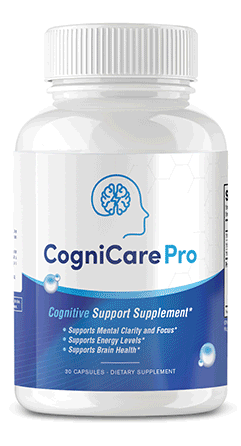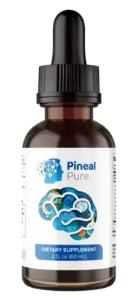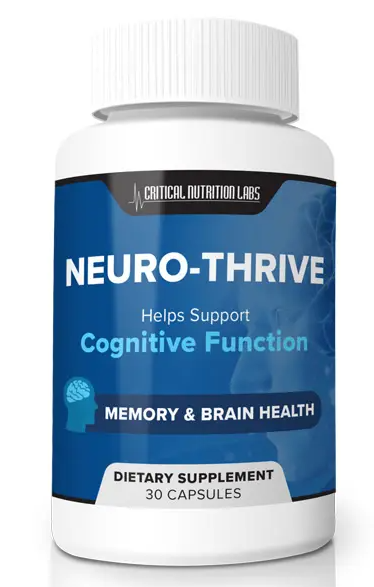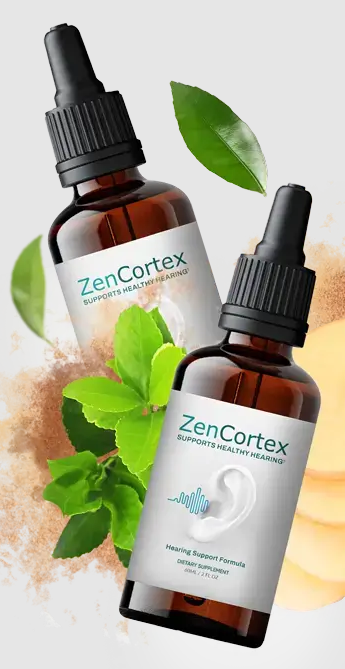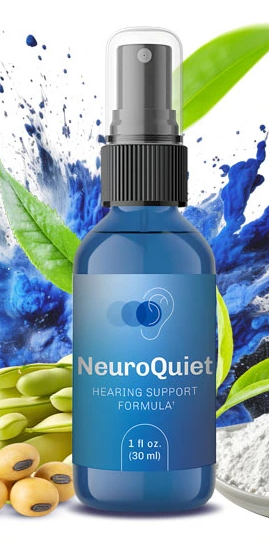Recommended Brain Health Supplements
Last updated: October, 2025
Brain health supplements are a category of dietary supplements that are marketed to support cognitive function, memory, focus, and overall brain health. These supplements often contain a variety of ingredients, including vitamins, minerals, herbs, and other natural compounds.
Compare our top rated supplements
CogniCare is a supplement containing ingredients like Ginkgo, Bacopa, and phosphatidylserine, aimed at supporting memory and cognitive function in general.
- Antioxidant Protection
- Enhanced Muscle Function
- Improved Cognitive Function
PinealPure is a natural supplement formulated to support memory and brain health. It contains a blend of ingredients like pine bark extract, Ginkgo Biloba, and Bacopa Monnieri.
- Improved Hearing Clarity
- Enhanced Cognitive Function
- Mood Enhancement
Neuro-Thrive is a brain health supplement claiming to enhance memory, focus, and cognitive function.
- Enhanced Memory and Learning
- Improved Focus and Concentration
- Increased Mental Clarity
Zencortex is a dietary supplement that claims to support hearing health. It is formulated with a blend of natural ingredients, including vitamins, minerals, and herbal extracts.
- Increased Energy Levels
- Improved Hearing Health
- Enhanced Cognitive Function
NeuroQuiet is a dietary supplement marketed to improve hearing health, reduce tinnitus symptoms, and enhance cognitive function.
- Tinnitus Reduction
- Improved Focus and Mental Clarity
- Stress and Anxiety Relief
In today's fast-paced world, the importance of maintaining cognitive function and overall brain health cannot be understated. With an increasing number of products marketed as brain health supplements, it can be overwhelming to choose the right one for your needs.
Understanding what these supplements are, how they work, and what ingredients to look for can significantly aid you in making informed decisions. In this blog post, we'll delve into various aspects of brain health supplements that will guide you on your journey to enhanced cognitive performance.

Before diving into the selection process, it's crucial to grasp the fundamentals of what brain health supplements entail.
The Concept of Brain Health
Brain health encompasses various factors, including memory retention, focus, mental clarity, and emotional stability. Just as physical exercise and nutrition benefit bodily health, specific nutrients and compounds can support cognitive functions. Brain health supplements are designed to provide these essential nutrients, potentially improving mental acuity and resilience against conditions like dementia and Alzheimer's disease.

The market offers a plethora of brain health supplements, each targeting different aspects of cognitive function. Common types include:
• Nootropics: Often referred to as “smart drugs,” nootropics enhance memory, creativity, or motivation.
• Omega-3 Fatty Acids: Known for their anti-inflammatory properties, these fatty acids may improve mood and cognitive performance.
• Antioxidants: Compounds like vitamin C and E combat oxidative stress, which can harm brain cells and impair cognition.
Each of these categories serves a distinct purpose but shares the common goal of enhancing mental performance.

When considering a supplement, familiarize yourself with its ingredients. Some popular ones include:
• Ginkgo Biloba: An ancient herb purported to improve blood flow to the brain and enhance memory.
• Bacopa Monnieri: An adaptogenic herb traditionally used in Ayurvedic medicine thought to improve memory and cognitive function.
• Phosphatidylserine: A phospholipid critical for cell membrane integrity, often linked to improved memory and attention.
Understanding these components can help you make an educated choice tailored to your needs.
Navigating the sea of options can seem daunting. However, a structured approach can simplify the decision-making process.
Assessing Your Needs

The first step in selecting the right brain health supplement is determining your specific needs. Are you looking to boost memory retention for studying? Or perhaps you require enhanced focus for work tasks?
Reflecting on your personal goals will eliminate options that don't align with your requirements, allowing you to focus on those that do.
Setting Clear Goals
Establishing clear, measurable goals will help you track progress and identify which supplements yield the most benefits. Perhaps you want to remember names better or reduce distractions during work hours. This clarity will inform your choices.
Keeping a Journal
Maintaining a journal can assist you in documenting your goals, experiences, and outcomes from taking different supplements. Over time, you'll notice patterns that can lead you to the best option for your unique circumstances.
Researching the Brand

Not all brain health supplements are created equal, and the brand plays a significant role in product quality. Therefore, research is imperative.
Transparency and Third-Party Testing
Look for brands that prioritize transparency in their ingredient sourcing and manufacturing processes. Third-party testing, which verifies the efficacy and safety of the product, is a hallmark of reputable companies.
Customer Reviews and Testimonials
Reading customer reviews and testimonials can offer invaluable insights into the effectiveness of a product. However, always remember that individual experiences may vary, so take them with a grain of caution.
Consulting Healthcare Professionals

It's advisable to consult with healthcare professionals before starting any new supplement regimen.
Discussing Pre-existing Conditions
If you have pre-existing health conditions or are currently on medication, professional guidance is crucial. Certain ingredients in brain health supplements can interact negatively with medications or exacerbate existing health issues.
Individualized Recommendations
Healthcare providers can offer personalized recommendations based on your medical history, lifestyle, and specific cognitive challenges.
Identifying beneficial ingredients can help streamline your search for effective brain health supplements.
Natural Herbs and Extracts

Many brain health supplements draw upon natural herbs and plant extracts known for their cognitive-enhancing properties.
Ginkgo Biloba
Ginkgo biloba has been widely studied for its potential to improve cognition, especially in older adults. It works by increasing blood circulation to the brain, which may enhance memory and cognitive processing.
It also possesses antioxidant properties that protect brain cells from damage caused by free radicals, thereby promoting overall brain health.
Bacopa Monnieri
Bacopa monnieri is another powerful herb that has garnered attention for its cognitive benefits. Traditionally used in Ayurvedic medicine, it is believed to enhance memory formation and speed of information processing.
Research suggests that it may also alleviate anxiety, contributing to improved focus and concentration. These combined effects make it an appealing option for anyone seeking cognitive enhancement.
Essential Fatty Acids
Omega-3 fatty acids, particularly DHA and EPA, play a pivotal role in brain health.
Benefits of Omega-3s
These fatty acids are essential for maintaining the structural integrity of brain cells and are involved in numerous cellular processes. They can promote neuroplasticity—the brain's ability to adapt and reorganize—enhancing learning and memory.
Additionally, omega-3 fatty acids possess anti-inflammatory properties that protect brain health and function over time, making them indispensable for anyone looking to preserve cognitive abilities.
Vitamins and Minerals

Certain vitamins and minerals are vital for optimal brain function.
Vitamin B Complex
B vitamins, particularly B6, B12, and folate, play a crucial role in neurotransmitter synthesis and overall cognitive function. They are associated with improved mood, energy levels, and mental clarity.
A deficiency in these vitamins can lead to cognitive decline, making it important to ensure adequate intake through diet or supplementation.
Magnesium
Magnesium is essential for various brain functions, including regulating mood and supporting memory processes. Low magnesium levels have been linked to increased anxiety and depression, which can negatively impact cognitive performance.
Considering a supplement with sufficient magnesium content can help maintain mental well-being and optimize cognitive functions.
While brain health supplements can offer benefits, it's essential to be aware of potential side effects and precautions.
Common Side Effects
Some individuals may experience side effects when taking brain health supplements, ranging from mild to severe.
Gastrointestinal Distress
Nausea, diarrhea, and stomach upset are common symptoms associated with certain supplements. It's vital to monitor your body’s response when introducing new products and discontinue use if adverse effects occur.
Allergic Reactions
Always check the ingredient list for potential allergens, as some herbal extracts may cause allergic reactions in sensitive individuals. Symptoms can range from mild skin rashes to severe anaphylactic responses.

As mentioned earlier, certain brain health supplements can interact negatively with prescription medications.
Stimulant Interactions
For instance, combining stimulants with supplements like Ginkgo Biloba can amplify side effects such as insomnia or increased heart rate. Always consult a healthcare provider if you're on medication to avoid harmful interactions.
Natural vs. Synthetic
Consider whether you prefer natural or synthetic supplements, as both have pros and cons. Natural supplements may be gentler on the body but might take longer to show results compared to their synthetic counterparts.
While brain health supplements can play a role, they should complement a healthy lifestyle focused on holistic wellness.
Balanced Diet
What you eat has a profound impact on your brain health. Diets rich in fruits, vegetables, whole grains, lean proteins, and healthy fats are ideal.
Foods to Include
Incorporating foods high in antioxidants, omega-3 fatty acids, and vitamins can offer natural protection against cognitive decline. Aim for variety to ensure diverse nutrient intake.
Hydration
Staying adequately hydrated is equally essential for cognitive function. Dehydration can lead to fatigue, poor concentration, and confusion, underscoring the need to drink water consistently throughout the day.
Regular Exercise
Physical activity boosts blood flow to the brain, enhancing cognitive function and reducing the risk of age-related decline.
Mental Exercises
Engaging in puzzles, reading, or learning new skills can stimulate the mind and foster neuroplasticity—further enhancing the benefits of brain health supplements.
Quality Sleep
Sleep is non-negotiable for optimal brain function. Poor sleep quality can hinder memory consolidation and cognitive performance.
Establishing Healthy Routines
Prioritizing sleep hygiene practices—like creating a calming bedtime routine and limiting screen time before bed—can significantly improve sleep quality, thereby supporting overall brain health.

As mentioned earlier, certain brain health supplements can interact negatively with prescriptChoosing the right brain health supplement involves careful consideration of your needs, thorough research on brands and ingredients, consultation with healthcare professionals, and acknowledgment of potential side effects.
Coupled with a balanced diet, regular exercise, and healthy lifestyle choices, you can maximize the benefits of these supplements, paving the way for enhanced cognitive function and improved brain health.
Remember that the journey to optimal brain health is multifaceted, blending dietary wisdom, lifestyle changes, and the strategic use of supplements tailored to your unique requirements.
Through this comprehensive approach, you empower your cognitive abilities and set the stage for lifelong mental vitality.ion medications.
Stimulant Interactions
For instance, combining stimulants with supplements like Ginkgo Biloba can amplify side effects such as insomnia or increased heart rate. Always consult a healthcare provider if you're on medication to avoid harmful interactions.
Natural vs. Synthetic
Consider whether you prefer natural or synthetic supplements, as both have pros and cons. Natural supplements may be gentler on the body but might take longer to show results compared to their synthetic counterparts.




